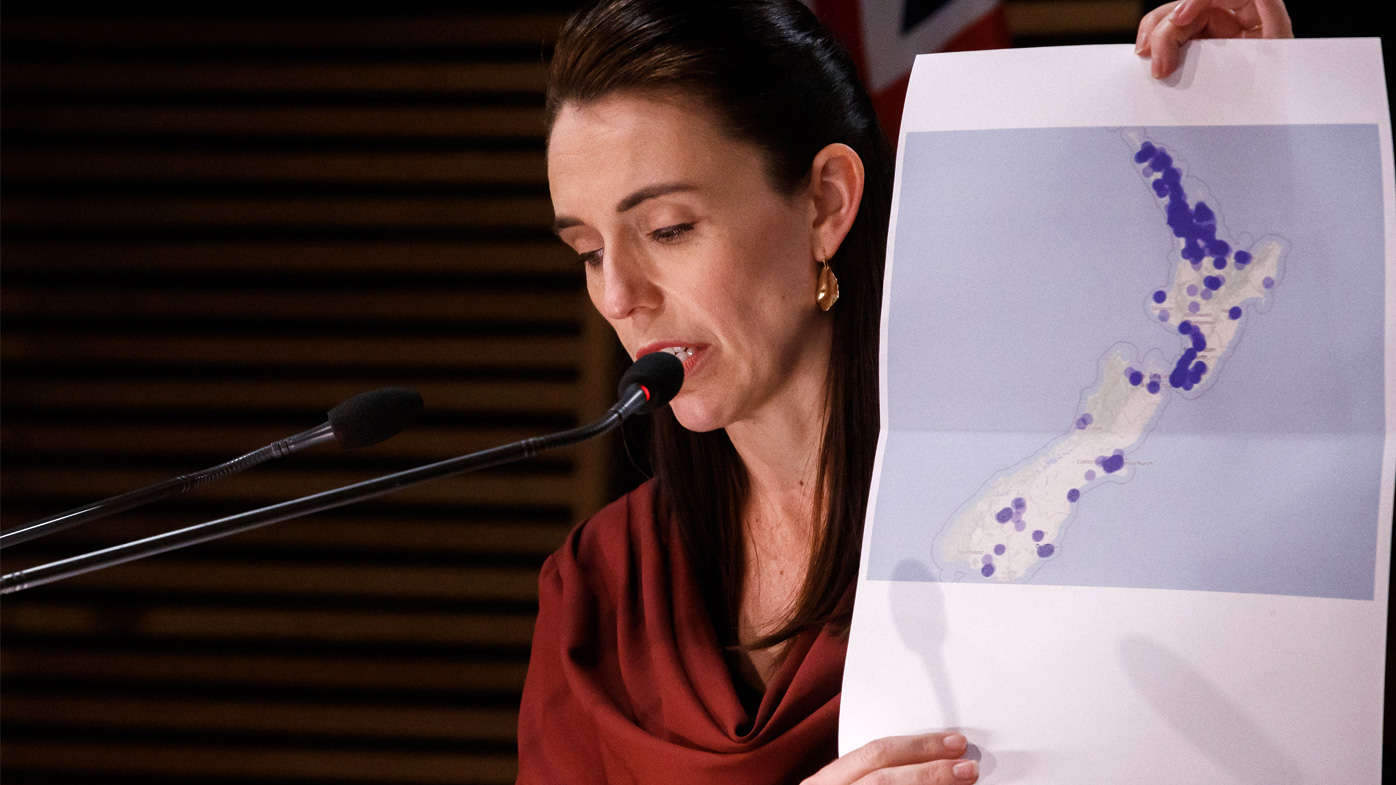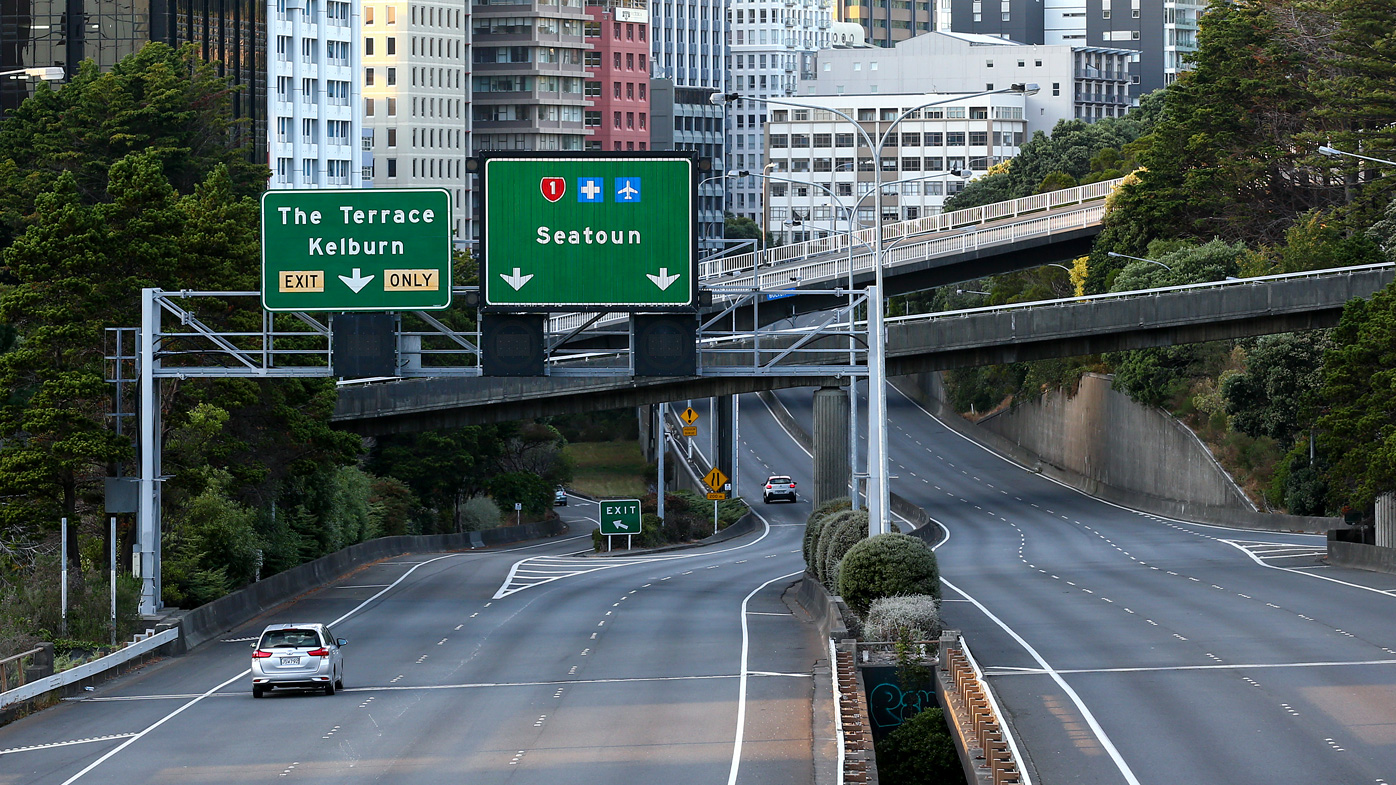When New Zealand went into lockdown last week over a single Delta case, critics were quick to mock the country's risk-averse approach.
British newspapers didn't hold back.
The Times called New Zealand a "mysterious socialist hermit nation" where the public "languish in a COVID prison," while The Telegraph slammed a once-welcoming country that had turned into an "isolated dystopia."

The reaction to New Zealand's approach speaks to a divide on how countries across the world are handling COVID.
More than 18 months into the pandemic, some countries, including the United Kingdom, have accepted they may never eliminate the virus - so instead, they're learning to live with it.
New Zealand, by contrast, is one of the few countries still committed to stamping COVID out.
Hours after confirming the country's first Delta case in the community, Prime Minister Jacinda Ardern ordered the entire nation into lockdown, with the backing of a broad consensus across the political spectrum.
Ten days later, the outbreak had spread to 347 cases, with one person in intensive care, as of Friday.
"Fortress New Zealand" - with some of the strictest border rules in the world - has been breached.
That's prompted questions over whether attempting to eradicate community transmission - known as the zero COVID strategy - still makes sense in a world swamped with the highly contagious Delta variant.
For now, Ms Ardern is doubling down on the strategy, even as neighbouring Australia edges away from the approach.
And for now, it seems the public remain on board - even if it means being a "hermit nation."
But New Zealand's own COVID-19 response minister has indicated the approach might not last forever.
The big question for New Zealand will be what its new strategy might look like.

No urgency to reconnect
Until Delta arrived, New Zealand's tough border rules had protected it from the turmoil seen in most other countries.
For most of the pandemic, the country has essentially operated as normal - sports games, music festivals, public gatherings and dining have all gone ahead in much the same way they would have before the pandemic.
So far, New Zealand has recorded just over 3000 cases and 26 deaths.
But the comparatively low death toll has come at a cost.
An estimated 1 million New Zealanders live overseas, with nearly 600,000 in Australia, and many of New Zealand's 5 million residents likely have at least one friend or relative living overseas.
Some haven't seen their loved ones in over a year.
In March 2020, New Zealand closed its borders to almost all foreigners, and later required almost all returning visitors to spend two weeks in a managed isolation facility - at their own cost.
Spaces are limited to around 4000 rooms a fortnight, and just over 167,000 people have passed through managed isolation facilities since March 2020.
The fortified borders have also contributed to another major casualty: tourism.
Once the country's largest export industry, overseas visitor arrivals slipped by more than 98 per cent in January 2021 compared with a year before.
Despite that, New Zealand doesn't seem to be in any rush to reconnect with the world.
There's even an us-versus-them mentality among some social media users who criticize overseas New Zealanders desperate to get home for not returning sooner.
That's because many still believe the upsides are worth it.
A recent poll by public polling company Stickybeak found 84 per cent of people surveyed supported the decision to move into lockdown last week.
A separate Stickybeak poll showed only one in four wanted the travel bubble with Australia - which had allowed for quarantine free travel - to be reopened this year.
Charlotte Guigou, 28, a teacher in the capital Wellington, said going into lockdown was annoying, and it had taken a toll not being able to see her family in France.
But she still thought the zero COVID approach was the right one.
"This lockdown was really tough, but before that we were just living life like normal, and it was all good, it was really chill," she said.
"It does seem like the pain of not having the borders open, for what we get in return, for the lifestyle we get in return, is still worth it."
Anna Robinson, 32, spent much of the pandemic in Europe before moving back to New Zealand in April.
Like Guigou, the strict border rules come at the cost of missing out on loved ones' important moments, such as births and weddings.
But she thinks New Zealand's rules mean that vulnerable people or people with underlying health conditions are not being cast aside.
"Lockdown feels like a very small price to pay for the amount of freedom and safety for the community that will come after," she said.cnn
from 9News https://ift.tt/3yml3Ry
via IFTTT


0 Comments